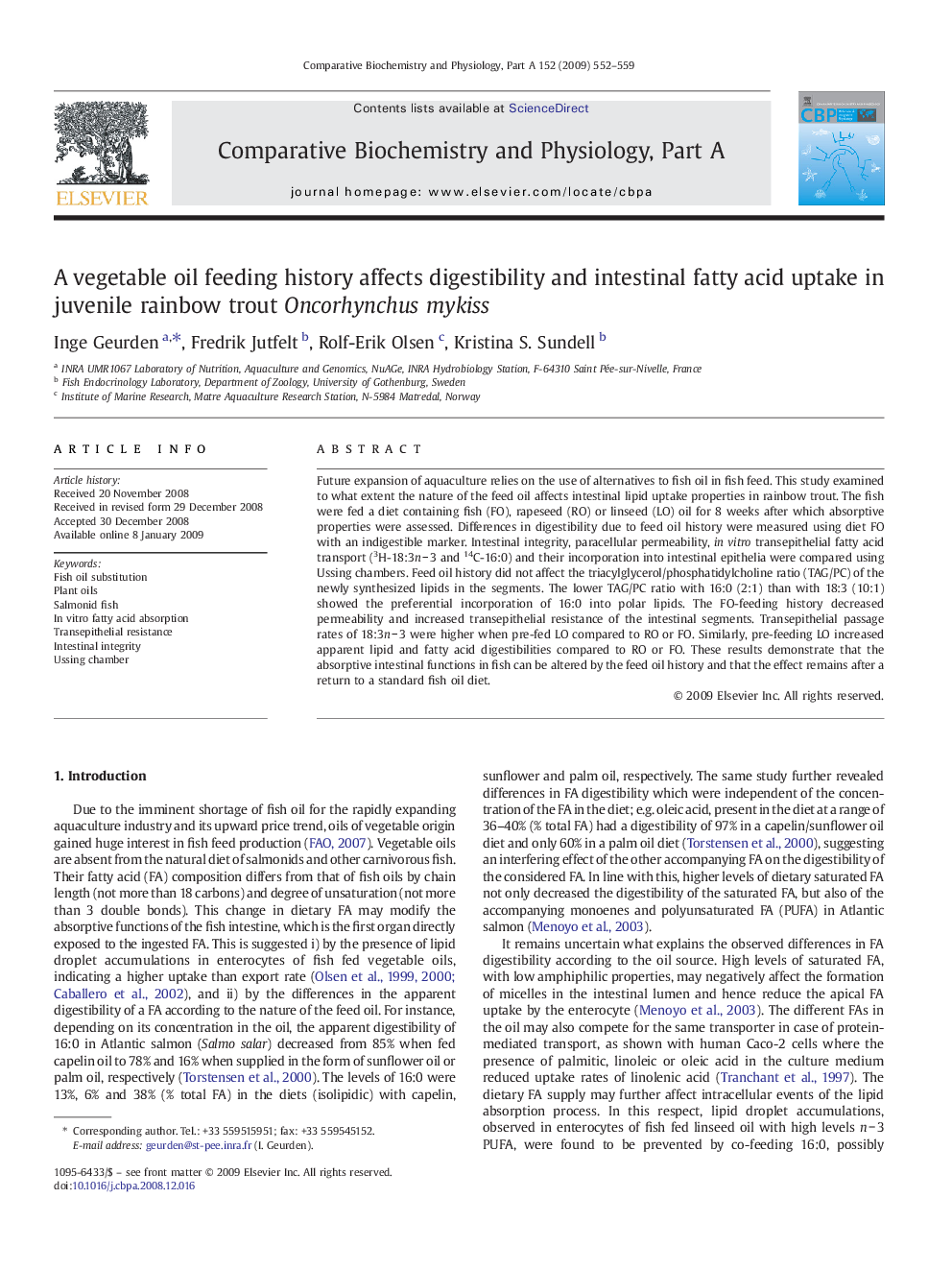| Article ID | Journal | Published Year | Pages | File Type |
|---|---|---|---|---|
| 1974639 | Comparative Biochemistry and Physiology Part A: Molecular & Integrative Physiology | 2009 | 8 Pages |
Abstract
Future expansion of aquaculture relies on the use of alternatives to fish oil in fish feed. This study examined to what extent the nature of the feed oil affects intestinal lipid uptake properties in rainbow trout. The fish were fed a diet containing fish (FO), rapeseed (RO) or linseed (LO) oil for 8 weeks after which absorptive properties were assessed. Differences in digestibility due to feed oil history were measured using diet FO with an indigestible marker. Intestinal integrity, paracellular permeability, in vitro transepithelial fatty acid transport (3H-18:3n â 3 and 14C-16:0) and their incorporation into intestinal epithelia were compared using Ussing chambers. Feed oil history did not affect the triacylglycerol/phosphatidylcholine ratio (TAG/PC) of the newly synthesized lipids in the segments. The lower TAG/PC ratio with 16:0 (2:1) than with 18:3 (10:1) showed the preferential incorporation of 16:0 into polar lipids. The FO-feeding history decreased permeability and increased transepithelial resistance of the intestinal segments. Transepithelial passage rates of 18:3n â 3 were higher when pre-fed LO compared to RO or FO. Similarly, pre-feeding LO increased apparent lipid and fatty acid digestibilities compared to RO or FO. These results demonstrate that the absorptive intestinal functions in fish can be altered by the feed oil history and that the effect remains after a return to a standard fish oil diet.
Related Topics
Life Sciences
Biochemistry, Genetics and Molecular Biology
Biochemistry
Authors
Inge Geurden, Fredrik Jutfelt, Rolf-Erik Olsen, Kristina S. Sundell,
